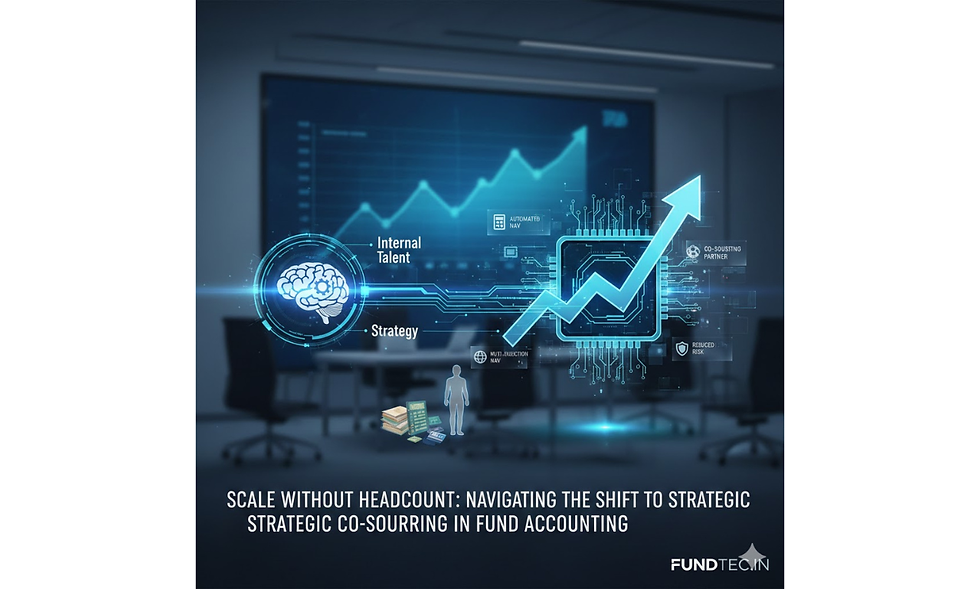When Should Hedge Fund Outsource?
- yash52
- Dec 25, 2023
- 2 min read
Updated: Jul 7, 2025
Strategic outsourcing of functions such as administration and technology is an issue that fund managers face throughout a lifecycle, beginning with earliest seeds to full maturity. Cost is a factor when deciding on a service provider, but think long term when outsourcing. Investors will scrutinize your choice of service providers as closely as they will your strategy. Without an institutional-grade administrator and technology provider, you’ll never be able to attract the level of institutional investors you need and you’ll also have a hard time growing beyond family and friends’ money.

Administration: The success of a fund depends on engineering the proper split of responsibilities for running the firm: investment management activities, day-to-day operations and outsourced administration operations.
The fund administrator is usually responsible for: remarking the portfolio; maintaining quality control over valuation; calculating NAV; providing third-party valuations; calculating the fund’s income and expense accruals; preparing reports to shareholders; and maintaining and filing the fund’s financial books and records, including reconciliation of holdings with custody and broker records. But some administrators may offer other services, including: trade order management, confirmation and settlement; collateral administration (the day-to-day oversight of collateral, calls, payments and challenges); and risk measurement.
Choosing the right administrative provider is crucial to the success of your fund. But assessing an administrator is never simple. Some of the questions to ask a potential administrator include:
Expertise: Do you have an understanding and familiarity with the fund’s strategy?NAV: How frequently can you provide NAV calculations? Can you offer daily or weekly estimates if necessary?Reconciliations: How often do you do reconciliations?Scalability: Do you have the capacity to scale upwards as the fund grows and its strategy evolves?Infrastructure: How robust is your technology platform?
Technology
Regardless of strategy and size, all firms seek the same core IT requirements: a robust, scalable, fully tolerant system—essential for their business-as-usual operations. Outside the core requirement are variations that differ between funds based on strategy, order management systems, portfolio management systems (PMS) and risk management systems (RMS). By breaking up the outsourcing of core IT infrastructure and RMS/PMS into separate components, you segregate service-provider risk, thereby reducing overall risk.
Outsourcing saves money upfront but carries other risks that must be managed. Funds must pay attention to the technology provider’s security, privacy and data-recovery capabilities. And, remember: you can have the most robust IT infrastructure, but if the personnel and SLAs behind that infrastructure are lacking, then it means nothing. Another important consideration in outsourcing is to find a provider that can connect you to a community of experts and professionals that will help you grow.
Things to consider when outsourcing core IT infrastructure include:
Public (cloud-based services) versus privateAssessing the Support and Service Level AgreementsAssessing provider’s security, privacy and disaster recovery capabilities
Choose wisely when deciding on a provider and remember: you are responsible for everything your supplier does. You still need to have someone in-house monitoring things. Think long and hard about whom you outsource to since investors will be examining your decisions closely.
Courtesy- Bloomberg





Comments